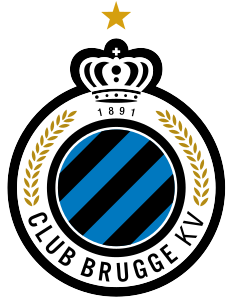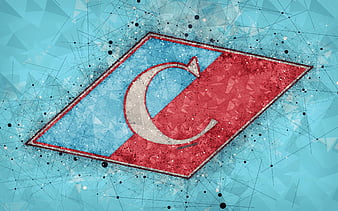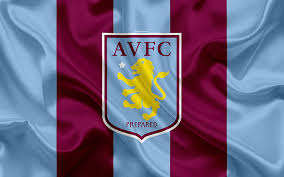
Club Brugge
Club Brugge KV, often referred to simply as Club Brugge, stands as one of the most successful and historic football clubs in Belgium. Known for their passionate fanbase, iconic blue and black stripes, and consistent presence at the top of the Belgian Pro League, Club Brugge has built a reputation that extends far beyond national borders. From domestic dominance to memorable European campaigns, the club continues to shape the football landscape in Belgium and across the continent go8.
Origins and Early Growth
Founded in 1891, Club Brugge is among the oldest football institutions in Belgium. Initially, the club was part of the broader sporting culture of Bruges, a city famous for its medieval charm and cultural heritage. By the start of the 20th century, Club Brugge had already become a competitive force, setting the stage for decades of growth and achievement.
The team quickly established itself as a symbol of local pride, gaining recognition for its disciplined style of play and ability to challenge rivals from larger Belgian cities. This foundation helped the club secure its first national championship in 1920, marking the beginning of its decorated history.
Domestic Dominance in Belgian Football
Club Brugge has consistently been one of the strongest teams in the Belgian Pro League, collecting numerous league titles and cup victories. The club is known for its ability to remain competitive across generations, ensuring that it is rarely absent from title races.
With more than 18 Belgian league championships and several Belgian Cup wins, Club Brugge stands as one of the most decorated clubs in Belgian football history. Their domestic success has also translated into appearances in the Belgian Super Cup, where they frequently clash with other top Belgian teams.
The team’s ability to build competitive squads, even after losing players to bigger European leagues, demonstrates the strength of its scouting and development system. Consistent investment in talent ensures that Club Brugge remains a leading contender in Belgian football.
The Jan Breydel Stadium – Fortress of the Blue and Black
Home matches are played at the Jan Breydel Stadium, which has a capacity of over 29,000 spectators. Shared with city rivals Cercle Brugge, the stadium is famous for its electric atmosphere during Pro League and European nights.
Fans of Club Brugge, known for their loyalty and enthusiasm, create an environment that pushes the team forward. The chants, banners, and sea of blue and black create one of the most intimidating atmospheres in Belgian football. This fortress-like setting has played a crucial role in many of the club’s most memorable victories.
European Adventures and International Recognition
While Club Brugge is a dominant force domestically, its ambitions have always extended into Europe. The club has represented Belgium in the UEFA Champions League and Europa League on many occasions. One of the club’s most remarkable achievements came in 1978, when Club Brugge reached the European Cup final (now the Champions League), facing Liverpool at Wembley. Although they fell short, this historic run cemented their reputation as Belgium’s leading international representative.
In more recent years, Club Brugge has consistently appeared in the Champions League group stages, often against Europe’s most prestigious clubs. Their performances against giants such as Real Madrid, Paris Saint-Germain, and Manchester City have demonstrated their ability to compete at the highest level. These campaigns not only enhance the club’s reputation but also provide vital exposure for Belgian football on the world stage.
A Factory of Talent
Club Brugge has long been recognized as a hub for developing and nurturing football talent. The club’s academy has produced several Belgian internationals who have gone on to make their mark in top European leagues. Their commitment to youth development ensures a steady pipeline of players capable of contributing both domestically and internationally.
In addition to developing homegrown talent, Club Brugge is also adept at identifying promising international players. By combining Belgian prospects with carefully scouted foreign signings, the club has managed to maintain balance and success over decades.
Rivalries that Shape Identity
One of the most passionate rivalries in Belgian football is the Bruges derby between Club Brugge and Cercle Brugge. While Club Brugge has historically been the stronger side, the rivalry remains a key fixture in the Belgian football calendar. The atmosphere during these matches reflects the intensity of local pride and tradition.
Another fierce rivalry exists with RSC Anderlecht, the most decorated club in Belgium. Matches between Club Brugge and Anderlecht are often decisive in the race for the league title and are among the most-watched fixtures in the country. These rivalries not only fuel excitement but also highlight the competitive spirit of Belgian football.
Modern Success and Continued Growth
The 21st century has been marked by a new wave of dominance for Club Brugge. The team has secured multiple league titles in the last decade, confirming their status as the benchmark for Belgian football excellence. Strong management, modern infrastructure, and a clear sporting vision have allowed the club to remain at the top.
In European competitions, the club has achieved respectable results, including memorable group-stage performances that demonstrated tactical discipline and resilience. These results have strengthened Club Brugge’s brand internationally, attracting global fans and media attention.
Style of Play and Tactical Approach
Known for combining technical ability with physical intensity, Club Brugge’s playing style has evolved over the years. Recent managers have emphasized high pressing, quick transitions, and attacking football. This modern tactical approach allows the club to compete with both domestic opponents and European heavyweights.
The adaptability of the squad has been a key factor in their recent success. Whether defending against elite Champions League opposition or dominating domestic rivals, Club Brugge has shown tactical flexibility that reflects the club’s ambition.
The Global Appeal of Club Brugge
Beyond Belgium, Club Brugge is steadily gaining international recognition. Their repeated presence in the Champions League has brought them global exposure, turning them into a recognizable name for football fans worldwide. Merchandise, digital engagement, and social media presence have also played a role in expanding the club’s influence beyond Europe.
Club Brugge represents a perfect example of how a historic club from a smaller league can continue to thrive in the modern era of football globalization. By blending tradition with innovation, the club continues to strengthen its brand and expand its fanbase internationally.
Looking Ahead
The future of Club Brugge looks promising. With consistent domestic dominance, strong financial management, and continued investment in infrastructure and youth development, the club is well-positioned for long-term success. Their ongoing participation in European competitions ensures that they remain an important representative of Belgian football at the highest level.
For fans and neutrals alike, Club Brugge embodies the story of resilience, tradition, and ambition. Whether fighting for domestic trophies or challenging Europe’s elite, the club’s journey reflects the enduring spirit of Belgian football.




